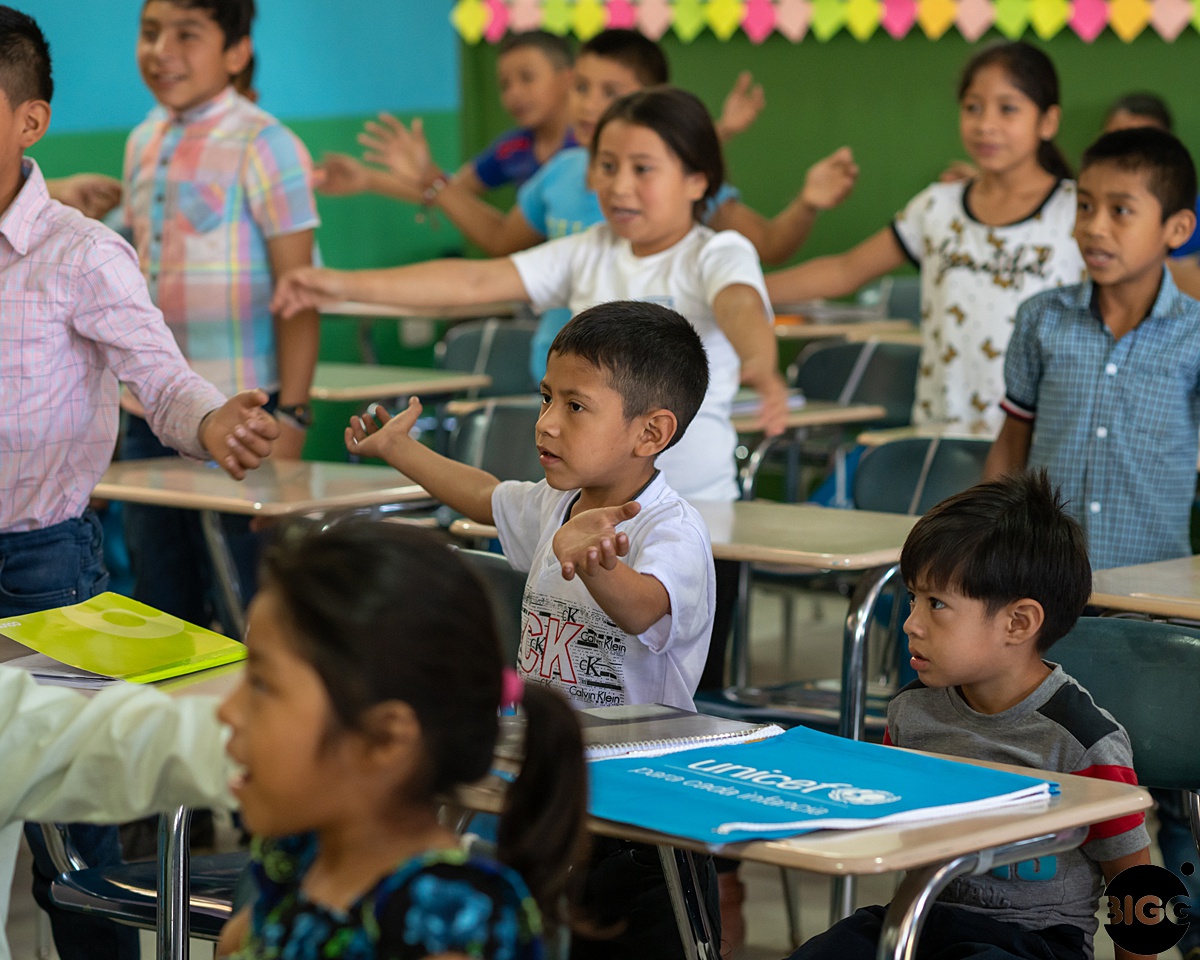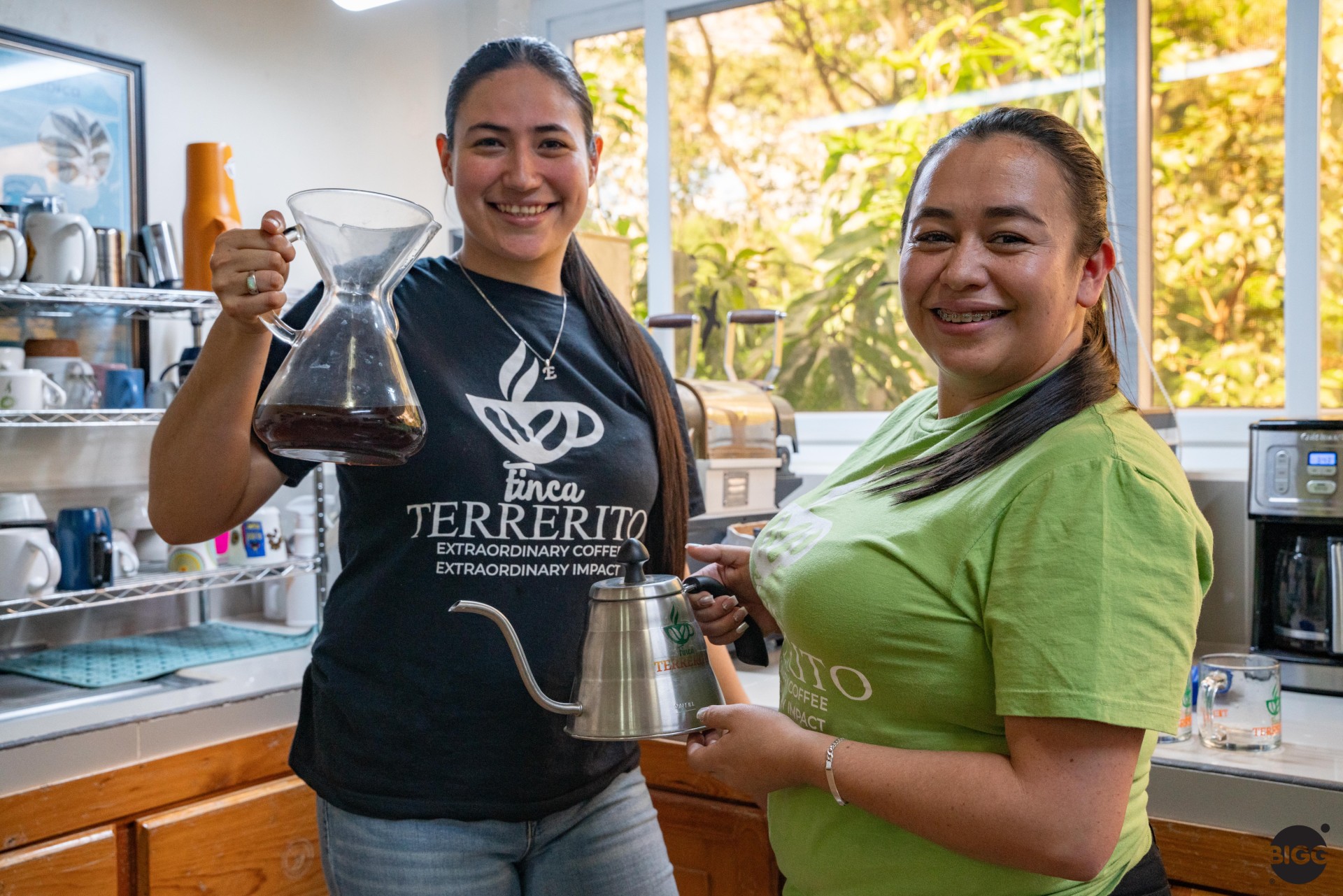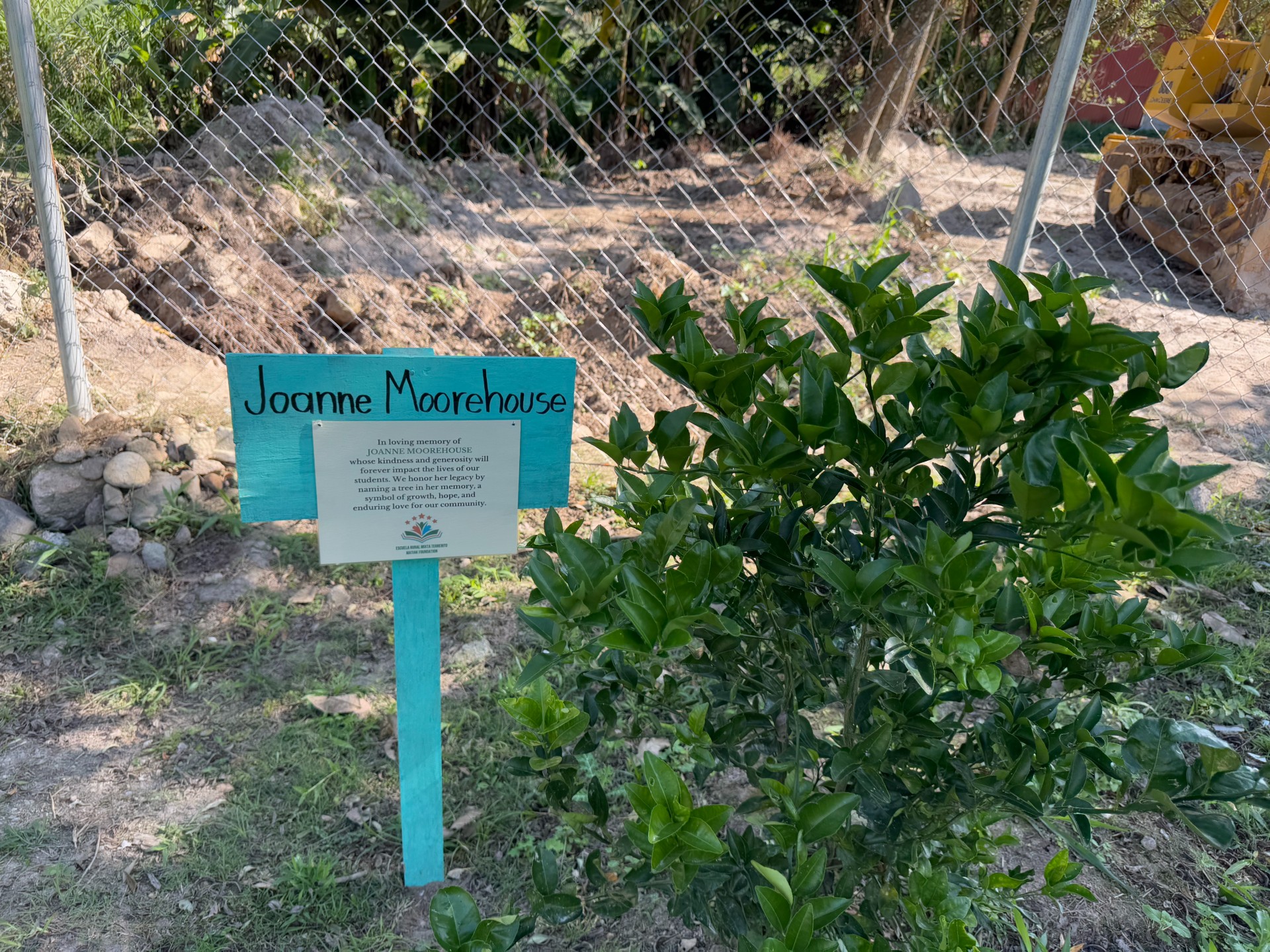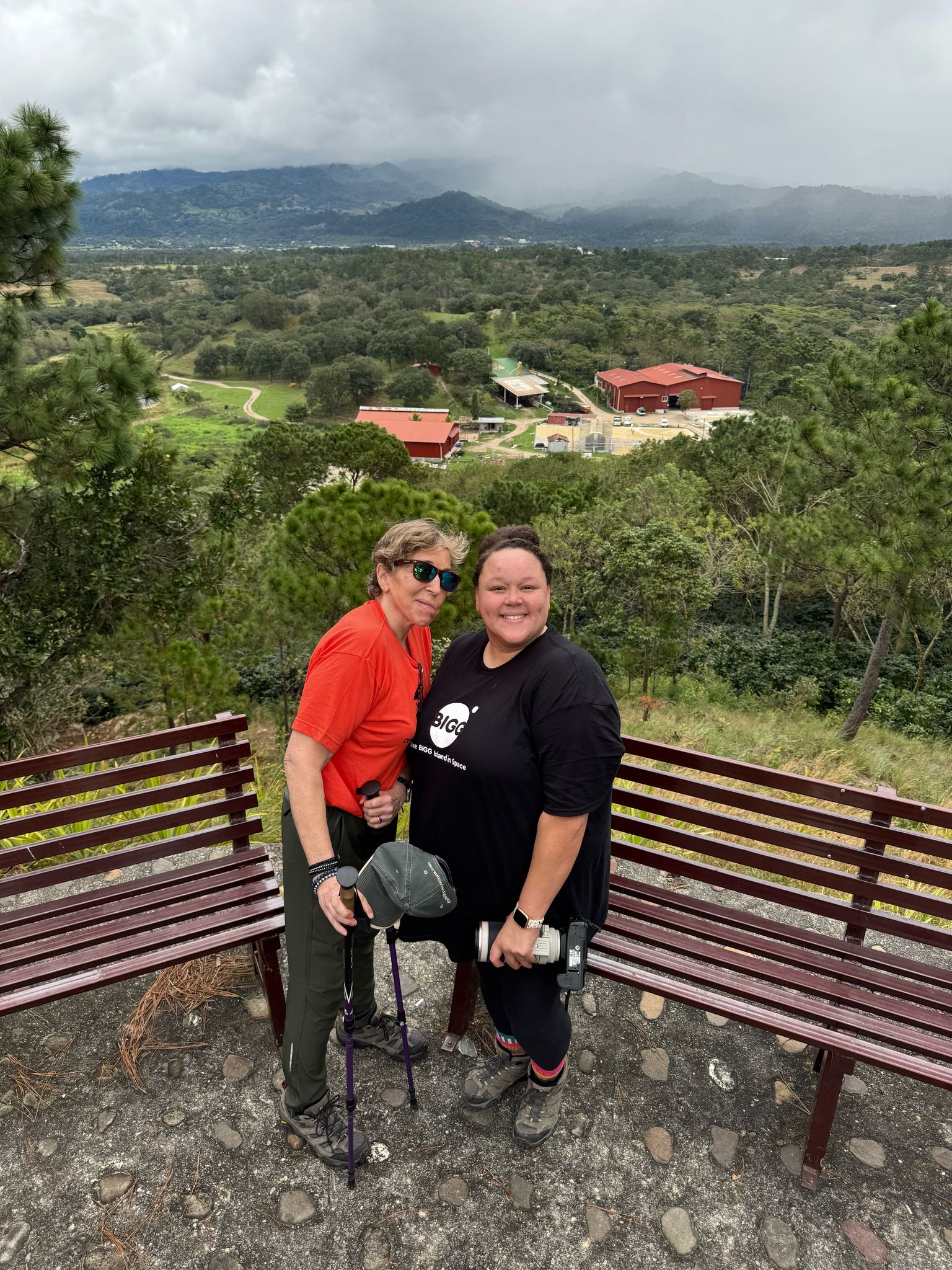Do you know what it’s like to find a needle in a haystack?
That rare Eureka moment of discovery when everything you’d hoped for turns out to be true, and maybe even better than you’d imagined?
Then consider our first “Boots on the Ground” visit to Al and Leticia (we call her Letty) Lopez’s coffee farm in Corquin, Honduras in June of 2023.It’s as if we showed up thirsty, and they offered us water from a firehose. More water than we could drink in one sitting, but it felt so good to dive in.
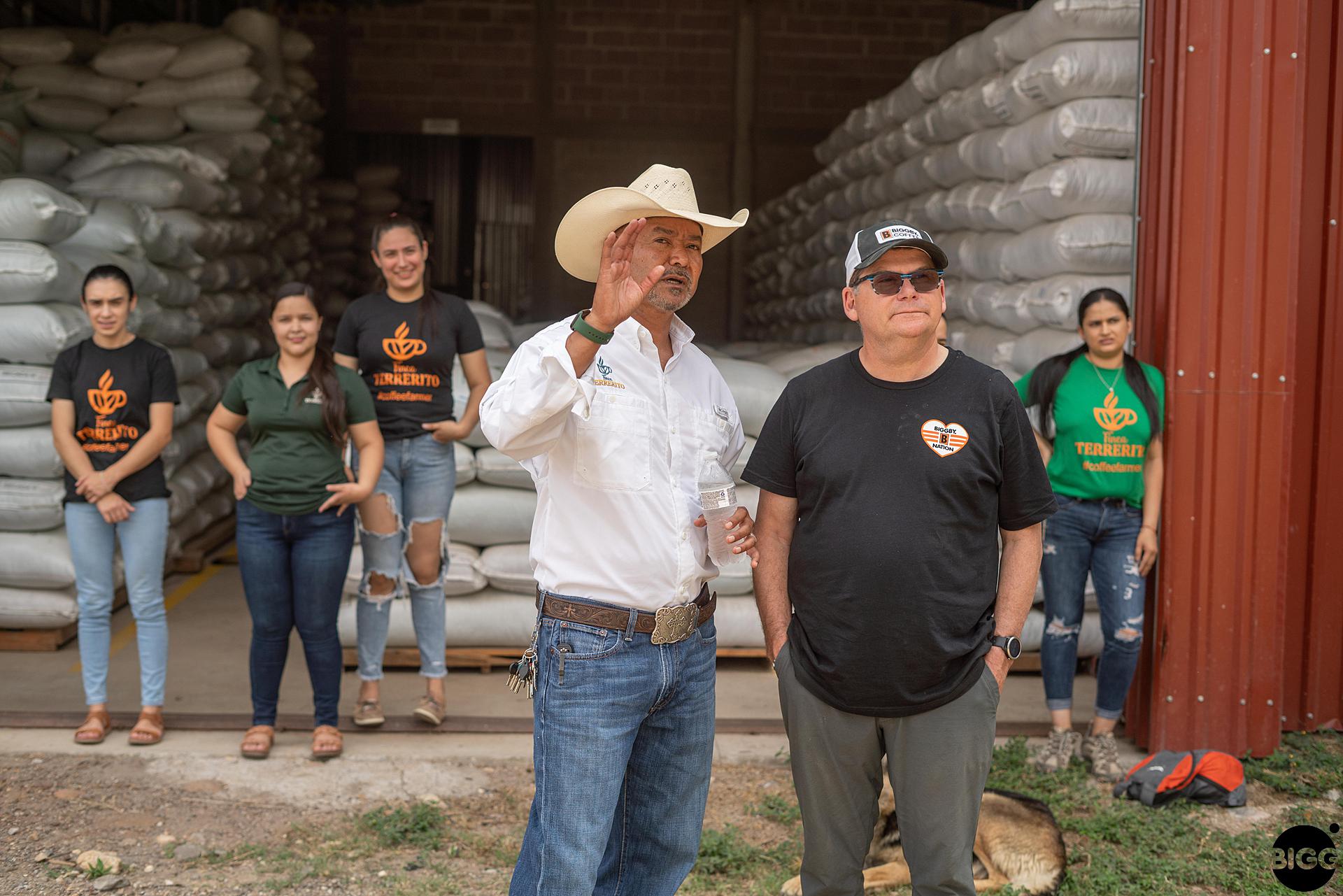
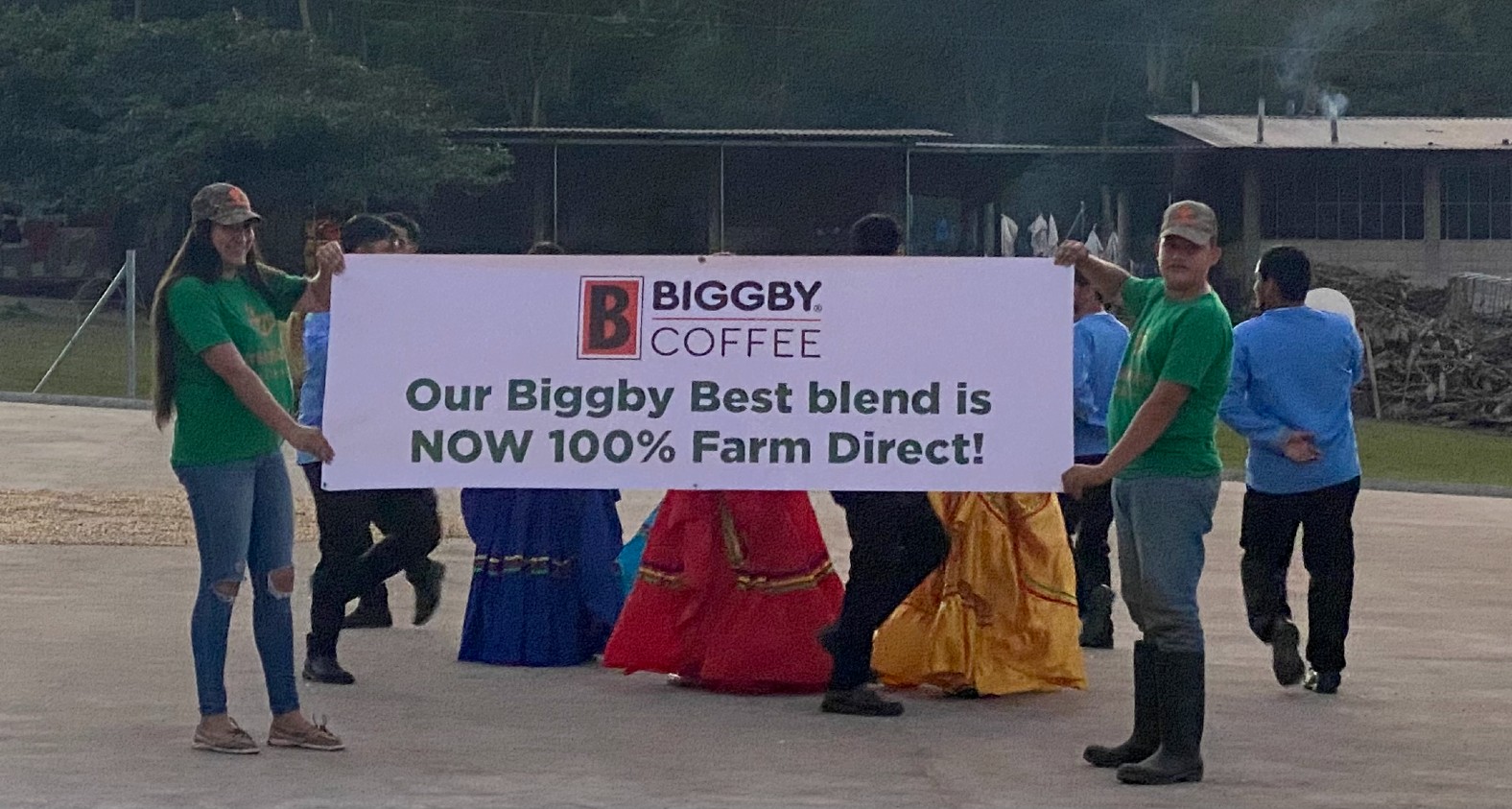
Finca T (for short)
Their story is remarkable, and you can read about a lot of what they had accomplished up to the point of our first visit here.
Since then, Finca Terrerito (Finca T for short) has become our fourth Farm-Direct partner, and their first container of OBIIS certified coffee has arrived. As of now, 40% of BIGGBY COFFEE’s best-selling blend, BIGGBY BEST, will be made up of coffee from Finca T and 20, or so, of the very small coffee producers they work with in surrounding communities. And that means that BIGGBY BEST is 100% Farm-Direct!
We are really excited and inspired by all that Al and Letty have already accomplished.
But there is so much more happening on the farm, and so many big projects to come.
When we visited last year, they were building a new composting facility, expanding their reservoir, planting new coffee fields, building new guest quarters, and making plans to expand their warehousing capacity. And that’s just what I remember off the top of my head.
But there was no project on the farm that Al and Letty were more passionate about than the school they were building in conjunction with the Matiak Foundation out of Atlanta, Georgia. The construction was about half-way completed last June. Their plan was to open in January of this year.
We led an OBIIS Farm-Direct trip to Finca T in January of 2024, and were very much looking forward to checking in on the school.
But before I tell you about what we found, I think it’s useful to know why a new school in their community is such a game changer.
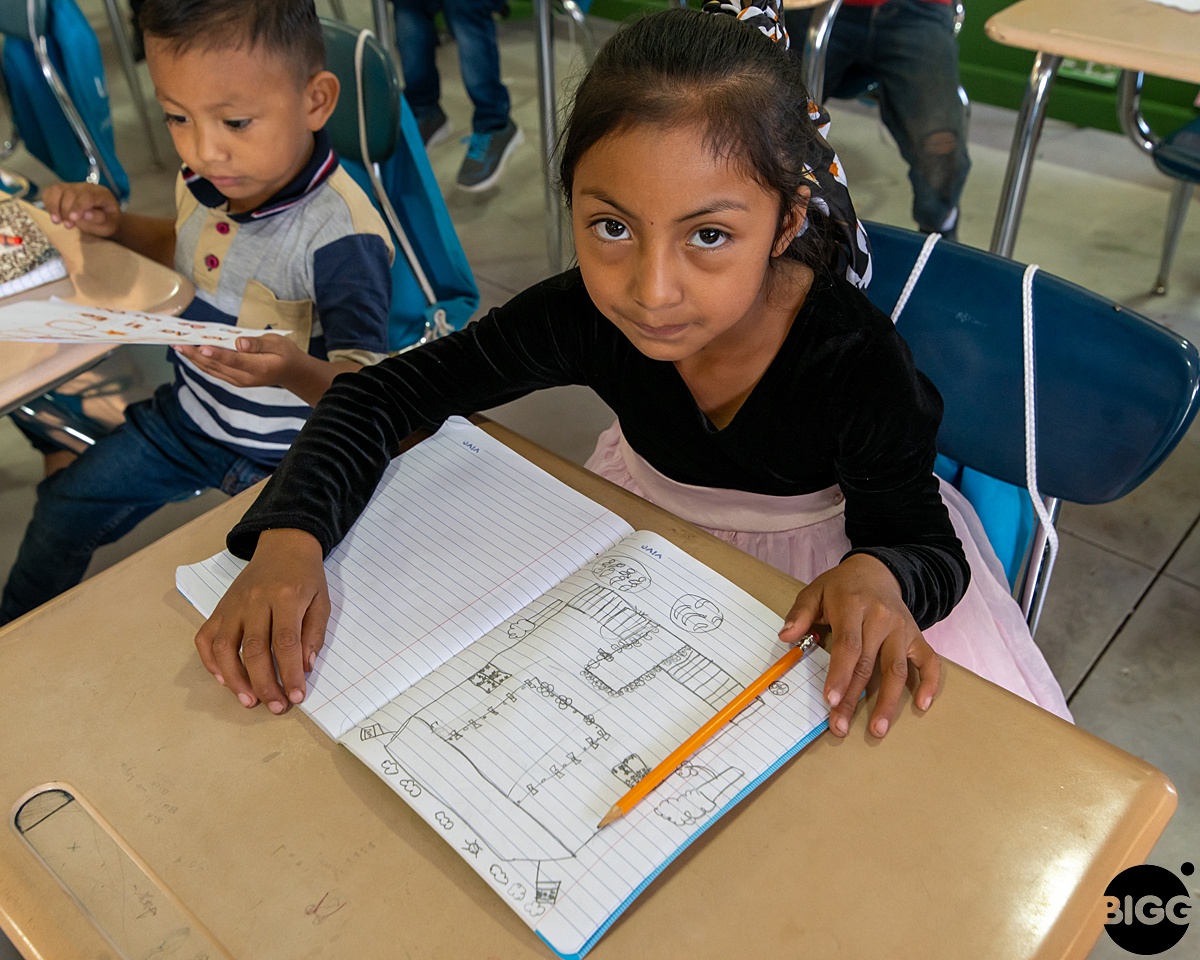
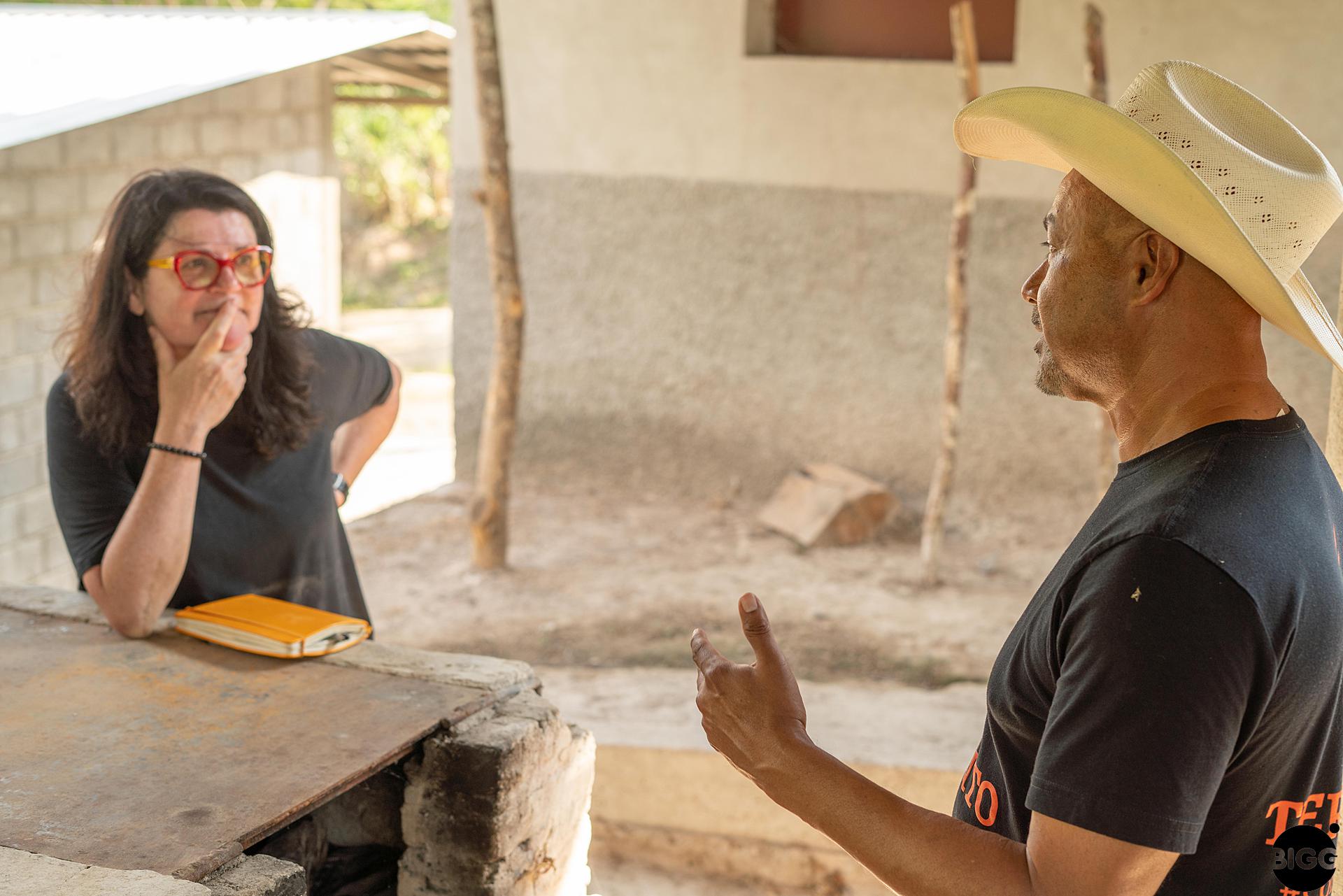
Schools in Coffee Country
Growing up in North America, most of us live in a world where there are accessible schools providing free education in just about every community. And if it’s too far to walk to school, there is likely free transportation.
That is just not the way it is in coffee country. There are schools. Most, though, are in the cities and towns. If you live in the villages where coffee farms are, you’re probably not in walking distance. And there are school fees, uniforms, and books to buy. For many of the people that we meet on our travels, that is just not possible.
I’ll give you an example. We sat down with one of Al and Letty’s neighbors on our first visit. Oscar Armanda Garcia Santos has been petitioning the government for many years, trying to get a school built closer to his community. His own children couldn’t go to school, but he wants a better life for his grandkids. And it can cost more than half a day’s wages just to pay for the transportation to and from the nearest school. And that doesn’t include school fees.
The situation is even more difficult for many of the migrant workers that swell a coffee farm’s ranks during harvest. Often these workers are from the indigenous population, and there are language and cultural barriers to their children attending school… even if there is one to attend.
It’s one of the reasons why there are so many children working alongside their parents on small coffee farms. You can read more about that here.
The Matiak Foundation provided the funding, and Finca T donated the land, provided electricity, water and managed contractors.
Together, they broke ground on the building in 2023. And then packed, shipped and received a container of desks and chairs donated by Reinhardt University in Waleska, GA, and other necessary furnishings and kid-sized backpacks for the school from the Matiak Foundation and Unicef in late 2023. And they finally opened their doors to the local community and the farm workers’ children in January of 2024.
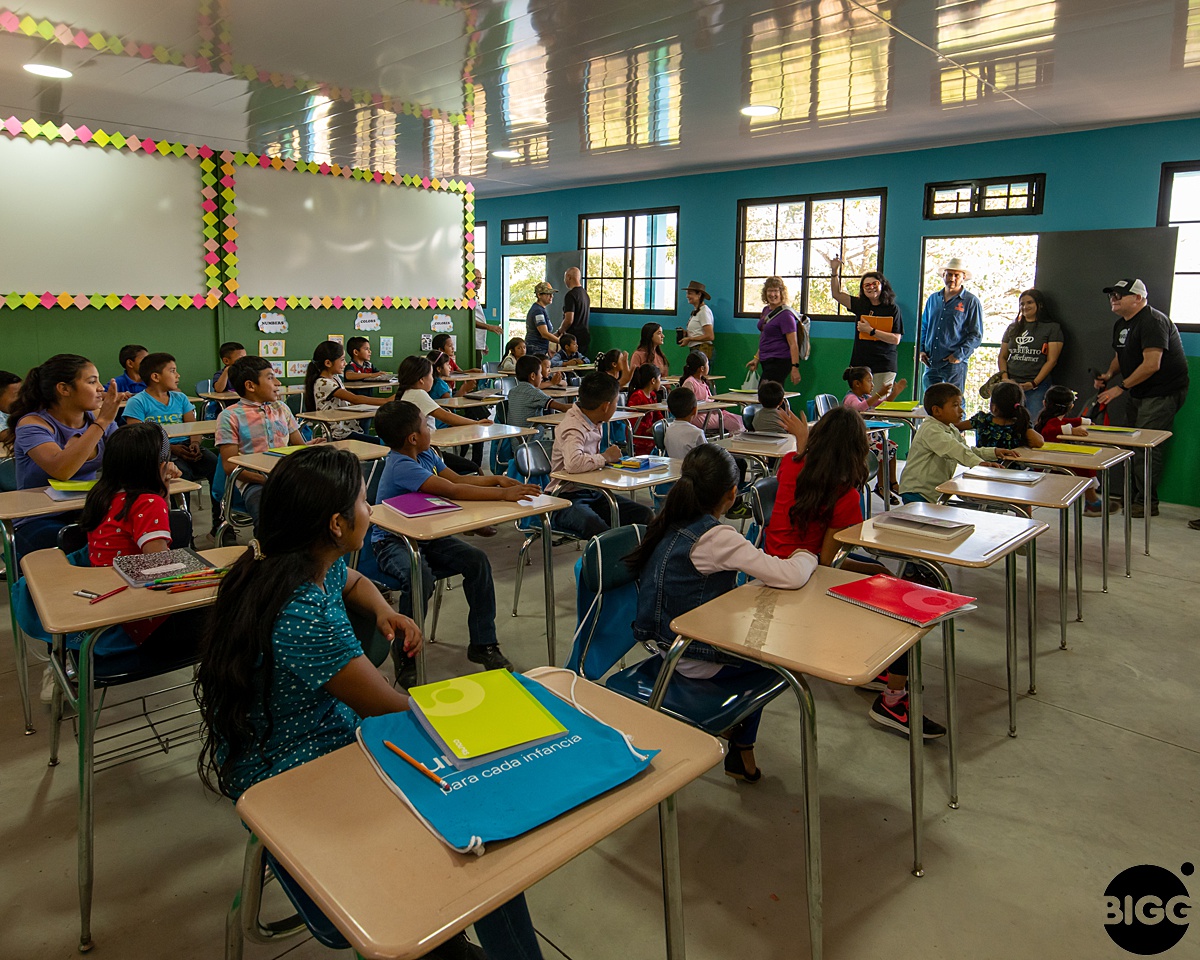

A Different Kind of School
There are currently four classrooms, subdivided by blackboards on wheels that were built on site by various board members of the Matiak Foundation. The school serves 24 children grades 1-6. The flexible configuration allows for the space to be used for meetings and community events at night and on the weekends. And, unusually, their classrooms are all air-conditioned.
Fittingly for a school on the grounds of a coffee farm, they have a focus on the environment. Each child plants a tree, and cares for it through the school year. In addition, each guest to the school also plants a tree with the students. Since they started construction, they have planted nearly 100 new trees on Finca T, nurtured by the students who water the newly planted “forest” twice a week.
The school is bilingual, teaching classes in both English and Spanish.
Their mission is to serve and empower the children so that they will grow up to be future leaders. They emphasize teaching technological literacy and are working on getting laptops for each student.
The man they hired to be the director of the school, Jorge Lopez, is a 39-year veteran teacher who has designed a curriculum based on teaching values, discipline, and responsibility. That curriculum was recognized by the Government of Honduras in 2018, and Jorge has been working with the Education Department to implement it throughout Honduras. The farm school is considered a national example of best practices.
They focus on two values each month, and thread those ideas through every lesson. The values include empathy, gratitude, sincerity, honesty and respect. The emphasis on values extends even to recess and mealtimes.
And, speaking of mealtimes, the kids are fed a hot lunch every day. For many of the families whose children are enrolled there, this is not a luxury that they experience at home.
And all of it is provided free of charge.
The Laughter of Children
On the day we visited, we were greeted with a lively bunch of songs, and a great presentation from Jorge and Brenda, their bilingual teacher. Brenda has also volunteered to teach English classes to the farm workers after school and on the weekends.
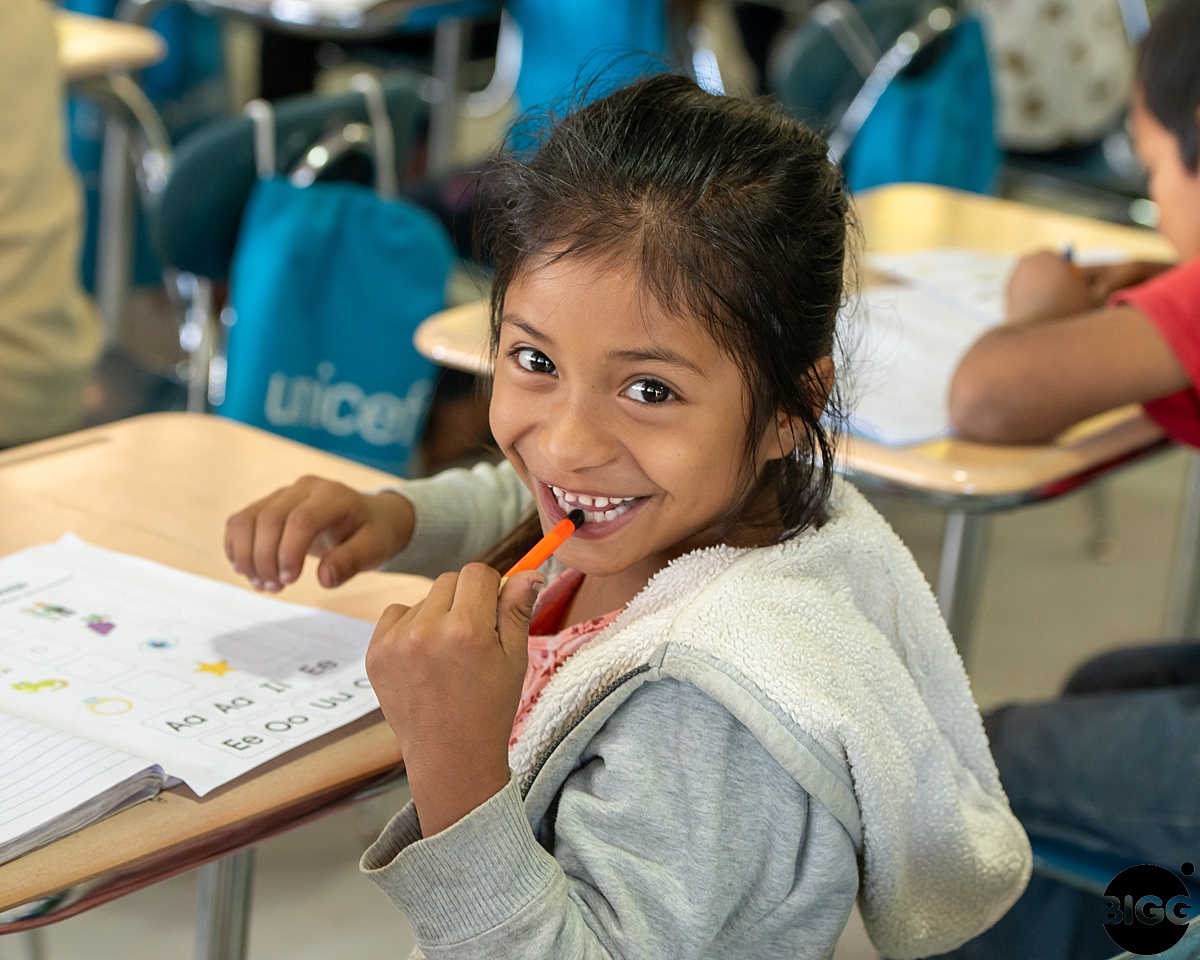
There are still some kinks to work out. For instance, Al is trying to convince all migrant families that come to the farm for picking season to enroll their children, but not everyone is convinced. Many of those parents may not speak Spanish, but rather their indigenous dialect. And they are distrustful of what might be considered an attempt to change their cultural practices or impose Honduran values.
But Al keeps at it. After all, he knows better than anyone that a good education can change your life. And that a school is sometimes more than a school. It’s an investment in people and community that can pay dividends through generations.

